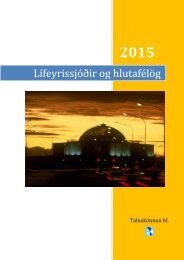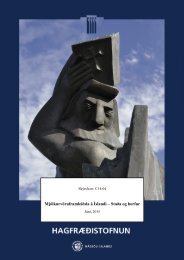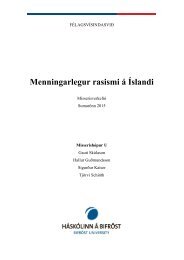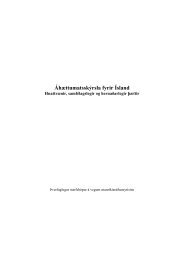You also want an ePaper? Increase the reach of your titles
YUMPU automatically turns print PDFs into web optimized ePapers that Google loves.
WORLD REPORT 2016<br />
HUMAN RIGHTS WATCH<br />
In July, Reverend Philip Woo Siu-hok was summoned to Shenzhen by religious affairs<br />
authorities to warn him against preaching to mainlanders who come to<br />
Hong Kong.<br />
Key International Actors<br />
Few governments exerted any substantial pressure on China over its worsening<br />
human rights record in 2015, instead limiting their interventions to bilateral<br />
human rights dialogues with the Chinese government and occasional public expressions<br />
of concern.<br />
Some, such as the United Kingdom, went so far as to urge legislators in Hong<br />
Kong to accept Beijing’s undemocratic electoral package, arguing that “something<br />
is better than nothing.” New European Union High Representative for Foreign<br />
and Security Policy Federica Mogherini failed to publicly raise human rights<br />
abuses with Chinese leaders at a summit in May, as did US President Barack<br />
Obama during a state visit by Xi in September.<br />
A remarkable diversity of governments, business and trade associations, universities,<br />
and other international organizations voiced concern through statements<br />
and submissions to the National People’s Congress regarding China’s draft foreign<br />
NGO management law after a second draft of the law was made public in<br />
May.<br />
In August, the International Olympic Committee awarded Beijing the 2022 Winter<br />
Olympic Games despite international concerns about the current crackdown on<br />
rights and the lack of accountability for human rights abuses that accompanied,<br />
and in important respects were fueled by, China’s preparations for the 2008<br />
Summer Olympic Games in Beijing.<br />
Foreign Policy<br />
Under the leadership of Xi Jinping, China continues to aggressively advance its<br />
territorial claims in Asia, causing particular alarm by building structures on small<br />
reefs in the South China Seas that could one day accommodate military outposts.<br />
At the Security Council, China joined Russia in May 2014 in vetoing a resolution<br />
that would have referred the situation in Syria to the International Criminal<br />
Court (ICC); in December, it tried to block discussion of the human rights situation<br />
in North Korea.<br />
China continues to allow United Nations rapporteurs to visit on a highly selective<br />
basis; the rapporteurs on the freedom of religion, freedom of peaceful assembly<br />
and association, human rights defenders, health, extrajudicial executions, independence<br />
of judges and lawyers, and the freedom from torture all continue to<br />
await a response to their requests to visit. While not playing a visibly assertive<br />
role at the UN Human Rights Council, China continues to act as a spoiler, blocking<br />
greater scrutiny of human rights situations in other countries, including Belarus,<br />
Iran, North Korea, Syria, and Ukraine.<br />
Concerns continued to be raised regarding reprisals against Chinese citizens<br />
participating in UN processes. The UN secretary-general noted that China had<br />
still not replied to communications about the death in custody of human rights<br />
defender Cao Shunli, who had been campaigning for greater civil society participation<br />
in the UN’s universal periodic review, and both the UN Committee on the<br />
Elimination of Discrimination against Women and Committee against Torture<br />
(CAT) expressed concern at attempts to limit civil society participation in the<br />
treaty body reviews. Chinese officials provided few meaningful answers during<br />
its November CAT review.<br />
The Chinese government marked the 70th anniversary of the end of World War II<br />
with a massive parade in Beijing. Sudanese President Omar al-Bashir, who is<br />
wanted by the ICC for genocide, war crimes, and crimes against humanity, attended<br />
at Beijing’s invitation.<br />
Beijing stepped up pressure on other governments to return allegedly corrupt officials<br />
to China; at least a dozen governments with politicized judicial systems<br />
complied and returned several dozen in 2015. China also pressured its neighbors<br />
to forcibly return refugees from China. In July, shortly after it had allowed<br />
nearly 170 Uighur women and children to resettle in Turkey after more than a year<br />
in detention, Thailand forcibly repatriated nearly 100 Uighur men to China, placing<br />
them at grave risk of imprisonment and torture.<br />
186<br />
187










